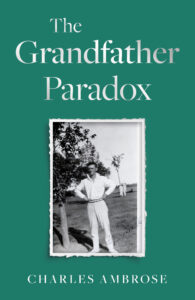The Apprentice: White lies or illegal fraud? The perils of lying in your CV

By Alan Price, CEO of BrightHR
As the much-loved reality series, the Apprentice, draws near its end, last night’s penultimate episode saw the final four being grilled on their CVs.
The candidates, all hoping to weather the intense interviews and become Lord Sugar’s new business partner, were brutally interrogated and probed on the experiences, qualifications and skills listed on their CVs – or resume, as Lord Sugar would say.
This led to some rather cringeworthy moments that some viewers might have found hard to stomach, much like Brittany’s alcoholic protein drink…
And whilst the countless blunders and interview faux-pas made for some brilliant TV entertainment, they did raise some questions for employers who have found themselves at the receiving end of similar behaviour.
Though certainly not encouraged, a tiny ‘white lie’ on a CV or in an interview isn’t likely to be a deal-breaker.
After all, do you really believe every applicant who states their extracurricular interests as historical museums, long countryside walks, volunteering at animal sanctuaries and reading War and Peace?
But the real issue arises when someone might impress with their CV, dazzle at interview, and then gets the job – only for their employer to find out later down the line that their abilities have been extremely embellished.
This is a common issue faced by many businesses, given that 40% of people in the UK have openly admitted to lying on their CV. Half of those confess to making up a qualification in the past, and a further 26% have exaggerated inflated their qualifications.
Overexaggerating a key skill which you come to rely on in a new role could no doubt land employees in hot water – and their employers too if this causes a decline in productivity or client satisfaction.
So then what, if any, rights do employers have if they realise they’ve been duped by a false CV?
Maybe it could be an online search to see that their LinkedIn credentials don’t match those that were communicated during the interview process.
In this case, it may still be possible to withdraw the offer although a notice period will need to be honoured to terminate the existing contract.
Or maybe it could be further down the line, when the new employee is unable to carry out duties that were expected and implied in their role.
Where the employee has already started their employment and is later discovered to have lied during the interview process, this can constitute a breach of trust and confidence that is necessary for an employment relationship to exist.
As with most HR matters, it is necessary to follow a full and thorough investigation into the matter before deciding on an outcome though.
Keeping a full and proper paper trail that documents every step of the recruitment process is vital to evidence the reason for the withdrawal of the offer; think keeping notes of interview questions, responses, CVs, application forms, and the offer letter.
It’s a sticky business so you might be wondering how best to avoid this.
It might be easy to fall victim to a mistruth here and there, but employers who find themselves in these situations may want to revisit the questions they are asking during an interview to ensure they are receiving honest answers.
Some companies might rely on tried and tested questions that they apply across the board whereas others bespoke their interviewing questions dependent on the role.
And here’s my advice for employees: If you identify any shortcomings when applying for a role, it’s best practise to be proactive and take action to actually gain knowledge or experience in that area.
To deliberately lie about your work experiences and skills could land you with legal woes under the Fraud Act 2006.
But more likely, you’d be fired, blacklisted by recruitment agencies and employers, and lose credibility within your industry.
Is it a risk worth taking? Probably not.
As the old adage goes, honest is always the best policy.




